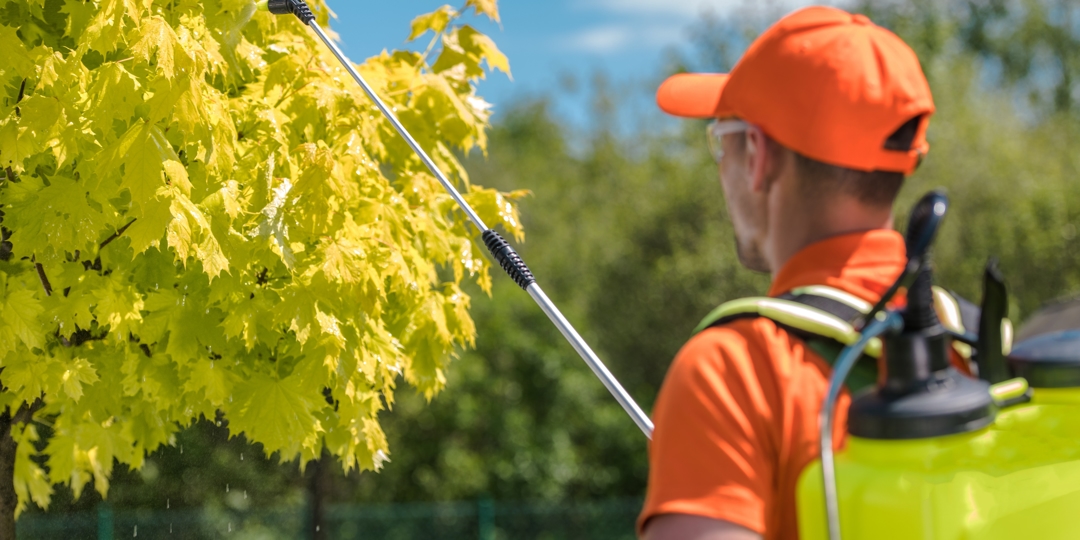Deep root fertilization is a long-term tree care solution designed to improve resistance to drought, pests, and diseases. By introducing nutrient-rich solutions directly into the root system, this method significantly boosts a tree's overall health.
In Northwest Houston, clay-heavy and drought-prone soils can restrict healthy root development. The density of these soils limits a tree’s access to both water and nutrients. Fortunately, the experienced arborists at Monster Tree of Northwest Houston are well-versed in deep root fertilization and how to apply it effectively.
What Is Deep Root Fertilization?
Deep root fertilization involves delivering essential minerals and nutrients directly into the soil where a tree's roots can absorb them. This is typically done by injecting fertilizer into the ground or applying it directly to the root system. ISA-certified arborists use high-pressure injections or specialized probes to administer a custom blend of liquid nutrients into the root zone.
We recommend having a certified arborist perform this process, as they have the tools and expertise to do it properly. The process often begins with a soil assessment and a health check of the tree’s root structure. Injection depths typically range from 6 to 18 inches, depending on local soil conditions.
Follow-up assessments are important to evaluate the effectiveness of the treatment. Continued monitoring helps ensure the long-term health of both the tree and the surrounding soil.
Why Surface Fertilizers Fall Short
Deep root fertilization differs significantly from traditional surface fertilization, which involves spreading fertilizer on the ground’s surface. Surface methods often result in runoff before the nutrients can reach the roots. This can lead to wasted materials and environmental concerns, as the excess fertilizer may enter storm drains.
In areas with compacted soil or paved surroundings, surface fertilizers are unlikely to reach feeder roots located deeper in the ground. Most of a tree’s nutrient absorption happens at these deeper levels, which surface fertilizers cannot access. While surface fertilization may benefit grass and small plants, larger trees require a deeper, more targeted approach. Even spike fertilizers fail to distribute nutrients evenly throughout the root zone.
Key Nutrients for Tree Growth
Soils in Northwest Houston vary in nutrient content and drainage capability. While clay soil contains beneficial elements like nitrogen, potassium, and phosphorus, its dense structure retains water and limits aeration. This makes it difficult for roots to grow deeply and absorb nutrients, often slowing tree growth.
Some areas also feature sandy or loamy soils. Sandy soil drains quickly, often washing nutrients away before roots can absorb them. Applying custom-blended fertilizers tailored to the soil type improves overall tree health. Well-nourished roots create trees that are more resilient to pests and diseases.
Healthy trees also develop stronger structural integrity, better equipping them to withstand high winds common in Northwest Houston. Shallow roots can make trees more vulnerable to storm damage. Deep root fertilization encourages stronger growth, resulting in fuller foliage, vibrant flowers, and healthier fruit production.
Signs Your Tree May Need Deep Root Fertilization
Common signs of nutrient deficiency include yellowing leaves, bare branches, smaller-than-normal leaves, and stunted growth. Premature leaf drop can signal a lack of iron or nitrogen. Young trees that are not growing rapidly may also be lacking key nutrients.
Dead or dying branches may indicate poor soil quality or insufficient nutrients. Cracks in the trunk or limbs can be another warning sign. Trees located near construction zones or areas with compacted soil are especially in need of nutrient support.
If you notice any of these symptoms, it's a good idea to contact the arborists at Monster Tree of Northwest Houston. We can provide a professional assessment and recommend the best fertilization and lawn care program for your landscape.
Best Timing for Fertilization in Houston
The best time to fertilize trees is in early spring, just as they begin to emerge from dormancy. Trees need to replenish the nutrients lost during winter, and a well-balanced blend supports strong leaf and bud development. Deep root fertilization also helps trees recover from the stress of freeze-thaw cycles and compacted soil.
Fertilizing in the fall improves drought resistance and helps trees prepare for winter by enhancing pest and disease defenses. Slow-release fertilizers provide ongoing nourishment, giving trees the resilience to thrive in Northwest Houston’s challenging environment.
Trust Monster Tree for Deep Root Treatments
Deep root fertilization supports stronger, healthier trees with better resistance to pests and diseases. High-pressure injection methods also help loosen compacted soil, improving root access to water and nutrients.
At Monster Tree of Northwest Houston, our team is equipped with the tools and expertise to provide thorough soil assessments and tailored treatment plans. We use professional high-pressure equipment to deliver effective deep root fertilization.
Contact us today to schedule a deep root fertilization service and give your trees the foundation they need to thrive.

